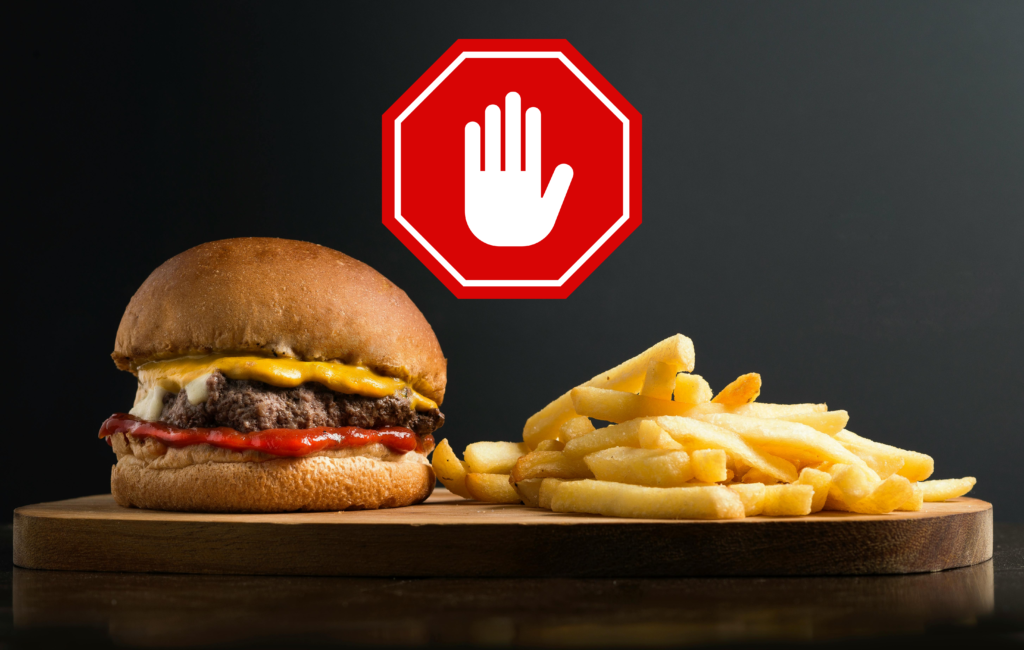
Junk food, often characterized by its high levels of sugar, salt, and unhealthy fats, presents significant nutritional deficiencies. These foods are typically highly processed and contain minimal essential nutrients, which can lead to various health complications. For instance, the excessive intake of sugar found in many junk foods contributes to the development of obesity, type 2 diabetes, and heart disease. The refined sugars rapidly increase blood glucose levels, causing insulin spikes that can lead to insulin resistance over time.
Additionally, junk food is notoriously high in sodium, which can elevate blood pressure and increase the risk of cardiovascular diseases. Unhealthy fats, including trans fats and saturated fats prevalent in fast food and snacks, further exacerbate heart-related conditions by raising bad cholesterol levels (LDL) and lowering good cholesterol (HDL). The cumulative effect of these unhealthy components establishes a foundation for chronic health issues that can persist throughout an individual’s life.
Beyond the long-term health risks, junk food also lacks essential nutrients such as vitamins, minerals, and dietary fiber. The absence of these critical nutrients can impair bodily functions and weaken the immune system, making the body more susceptible to infections and diseases. For example, the lack of fiber in junk food can lead to digestive problems such as constipation and diverticular disease, while the deficiency in vitamins and minerals can cause deficiencies like anemia and osteoporosis.
The immediate effects of consuming junk food are equally concerning. Energy spikes followed by crashes are common due to the high glycemic index of these foods, leading to feelings of fatigue and irritability. This rollercoaster of energy levels can affect daily productivity and overall mood. Furthermore, the addictive nature of junk food, driven by its palatability and convenience, often leads to overeating and poor dietary habits, perpetuating a cycle of unhealthy eating patterns.
Understanding these nutritional downfalls underscores the importance of seeking healthier alternatives to maintain optimal health and well-being. By recognizing the detrimental effects of junk food on both a short-term and long-term basis, individuals can make informed choices to support a healthier lifestyle.
The Psychological and Social Impact of Junk Food Consumption
Junk food, characterized by its high sugar and fat content, can have a significant psychological and social impact on individuals. One of the primary concerns is the addictive nature of these foods. The combination of sugar, fat, and salt creates a potent mix that triggers the brain’s reward system, leading to cravings and overeating. This addictive quality makes it difficult for individuals to regulate their consumption, often resulting in unhealthy eating patterns and weight gain.
Advertising and social norms play a crucial role in the prevalence of junk food, especially among children and adolescents. Aggressive marketing strategies target younger audiences, using appealing visuals and endorsements from popular figures to create a desire for these unhealthy foods. Social norms also contribute to the widespread acceptance of junk food, making it a common choice for social gatherings and celebrations. This normalization can make it challenging for individuals to make healthier dietary choices, as they may feel pressured to conform to societal expectations.
The impact of junk food consumption extends to mental health as well. Diets high in processed foods and low in essential nutrients have been linked to increased rates of depression and anxiety. Poor nutrition can affect brain function, leading to mood swings, irritability, and cognitive decline. The connection between diet and mental health underscores the importance of making mindful food choices to support overall well-being.
Social stigmas and pressures related to body image and dietary choices further complicate the issue. Individuals who struggle with their weight due to excessive junk food consumption may face discrimination and negative judgments from others. This can lead to low self-esteem, social isolation, and a strained relationship with food. Conversely, those who choose healthier options may feel ostracized or judged for not participating in the consumption of junk food, highlighting the complex interplay between diet, social dynamics, and mental health.
Identifying and Overcoming Barriers to Healthier Eating
Transitioning to a healthier diet often presents numerous challenges. One of the most significant barriers is the convenience and affordability of junk food. Fast food and processed snacks are typically less expensive and more readily available than healthier options, making them an attractive choice for many. Additionally, busy lifestyles can lead to a lack of time for preparing nutritious meals, further increasing the reliance on quick, unhealthy alternatives.
Another obstacle is the limited access to fresh, wholesome foods, particularly in food deserts where supermarkets and grocery stores are scarce. This situation forces individuals to rely on nearby convenience stores that predominantly stock junk food. Moreover, a lack of knowledge about nutrition can make it difficult for people to make informed choices, leading to poor dietary habits.
To overcome these barriers, practical strategies can be employed. Meal planning is a powerful tool that can help individuals prepare balanced meals in advance, reducing the temptation to opt for junk food due to time constraints. Cooking at home not only ensures control over ingredients but also fosters healthier eating habits. Learning to read nutrition labels can empower consumers to make smarter choices by understanding the nutritional content of the food they purchase.
When eating out, making mindful choices is crucial. Opting for dishes that feature vegetables, lean proteins, and whole grains over fried or sugary options can significantly improve one’s diet. Gradual changes are key to sustainable healthy eating. Setting realistic goals, such as incorporating one additional serving of vegetables per day or reducing soda intake, can make the transition less overwhelming and more achievable.
Ultimately, overcoming the barriers to healthier eating requires a combination of awareness, planning, and incremental changes. By addressing these challenges head-on, individuals can gradually shift away from the lure of junk food and embrace a more nutritious and balanced diet.
Exploring Healthy and Delicious Alternatives to Junk Food
Transitioning from junk food to healthier alternatives need not be daunting. There are numerous delicious and nutritious options that can satisfy cravings while providing essential nutrients. One effective approach is to focus on snacks and meals that are both convenient and satisfying. For instance, instead of reaching for a bag of chips, consider baked sweet potato fries. These can be easily prepared at home, offering a crunchy texture and natural sweetness without the excessive fat and calories associated with fried snacks.
Natural sweeteners are another valuable tool in creating healthier versions of popular junk foods. Honey, maple syrup, and fruit purees can replace refined sugars in many recipes, providing sweetness with added nutrients. For example, homemade granola bars made with oats, nuts, dried fruits, and a touch of honey can serve as a nutritious and portable snack, rich in fiber and healthy fats.
Incorporating more fruits, vegetables, whole grains, and lean proteins into the diet can significantly enhance overall nutrition. Smoothies made with fresh fruits, leafy greens, and a protein source like Greek yogurt or a plant-based protein powder can be a refreshing and nutrient-dense alternative to sugary beverages. Additionally, whole grain options such as quinoa or brown rice can be excellent substitutes for refined grains, offering more fiber and essential nutrients.
Mindful eating plays a crucial role in developing a positive relationship with food. By paying attention to hunger and fullness cues, savoring each bite, and eating without distractions, individuals can enjoy their meals more and make healthier choices. This approach encourages a balanced diet and helps prevent overeating.
Finally, balance and moderation are key. Enjoying favorite treats occasionally without guilt is essential for maintaining a healthy relationship with food. By making small, sustainable changes, it is possible to reduce the intake of junk food and embrace a diet rich in wholesome, nutritious alternatives.







